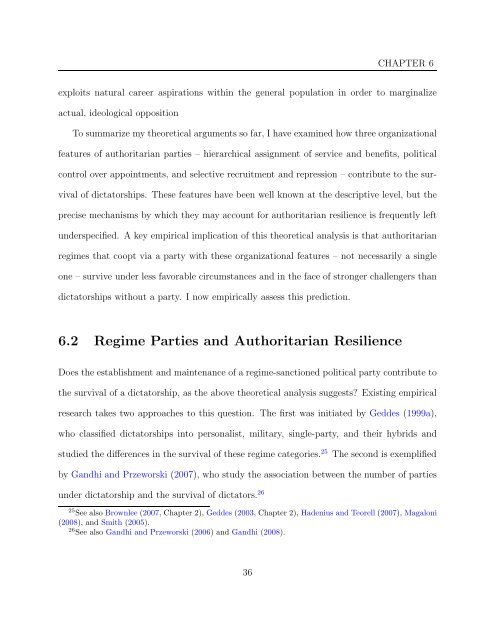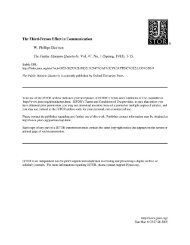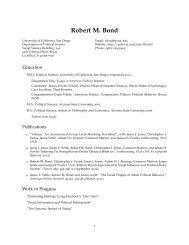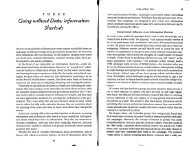Chapter 6 Why Authoritarian Parties? The Regime Party as an ...
Chapter 6 Why Authoritarian Parties? The Regime Party as an ...
Chapter 6 Why Authoritarian Parties? The Regime Party as an ...
Create successful ePaper yourself
Turn your PDF publications into a flip-book with our unique Google optimized e-Paper software.
CHAPTER 6<br />
exploits natural career <strong>as</strong>pirations within the general population in order to marginalize<br />
actual, ideological opposition<br />
To summarize my theoretical arguments so far, I have examined how three org<strong>an</strong>izational<br />
features of authoritari<strong>an</strong> parties – hierarchical <strong>as</strong>signment of service <strong>an</strong>d benefits, political<br />
control over appointments, <strong>an</strong>d selective recruitment <strong>an</strong>d repression – contribute to the sur-<br />
vival of dictatorships. <strong>The</strong>se features have been well known at the descriptive level, but the<br />
precise mech<strong>an</strong>isms by which they may account for authoritari<strong>an</strong> resilience is frequently left<br />
underspecified. A key empirical implication of this theoretical <strong>an</strong>alysis is that authoritari<strong>an</strong><br />
regimes that coopt via a party with these org<strong>an</strong>izational features – not necessarily a single<br />
one – survive under less favorable circumst<strong>an</strong>ces <strong>an</strong>d in the face of stronger challengers th<strong>an</strong><br />
dictatorships without a party. I now empirically <strong>as</strong>sess this prediction.<br />
6.2 <strong>Regime</strong> <strong>Parties</strong> <strong>an</strong>d <strong>Authoritari<strong>an</strong></strong> Resilience<br />
Does the establishment <strong>an</strong>d mainten<strong>an</strong>ce of a regime-s<strong>an</strong>ctioned political party contribute to<br />
the survival of a dictatorship, <strong>as</strong> the above theoretical <strong>an</strong>alysis suggests? Existing empirical<br />
research takes two approaches to this question. <strong>The</strong> first w<strong>as</strong> initiated by Geddes (1999a),<br />
who cl<strong>as</strong>sified dictatorships into personalist, military, single-party, <strong>an</strong>d their hybrids <strong>an</strong>d<br />
studied the differences in the survival of these regime categories. 25 <strong>The</strong> second is exemplified<br />
by G<strong>an</strong>dhi <strong>an</strong>d Przeworski (2007), who study the <strong>as</strong>sociation between the number of parties<br />
under dictatorship <strong>an</strong>d the survival of dictators. 26<br />
25See also Brownlee (2007, <strong>Chapter</strong> 2), Geddes (2003, <strong>Chapter</strong> 2), Hadenius <strong>an</strong>d Teorell (2007), Magaloni<br />
(2008), <strong>an</strong>d Smith (2005).<br />
26See also G<strong>an</strong>dhi <strong>an</strong>d Przeworski (2006) <strong>an</strong>d G<strong>an</strong>dhi (2008).<br />
36











